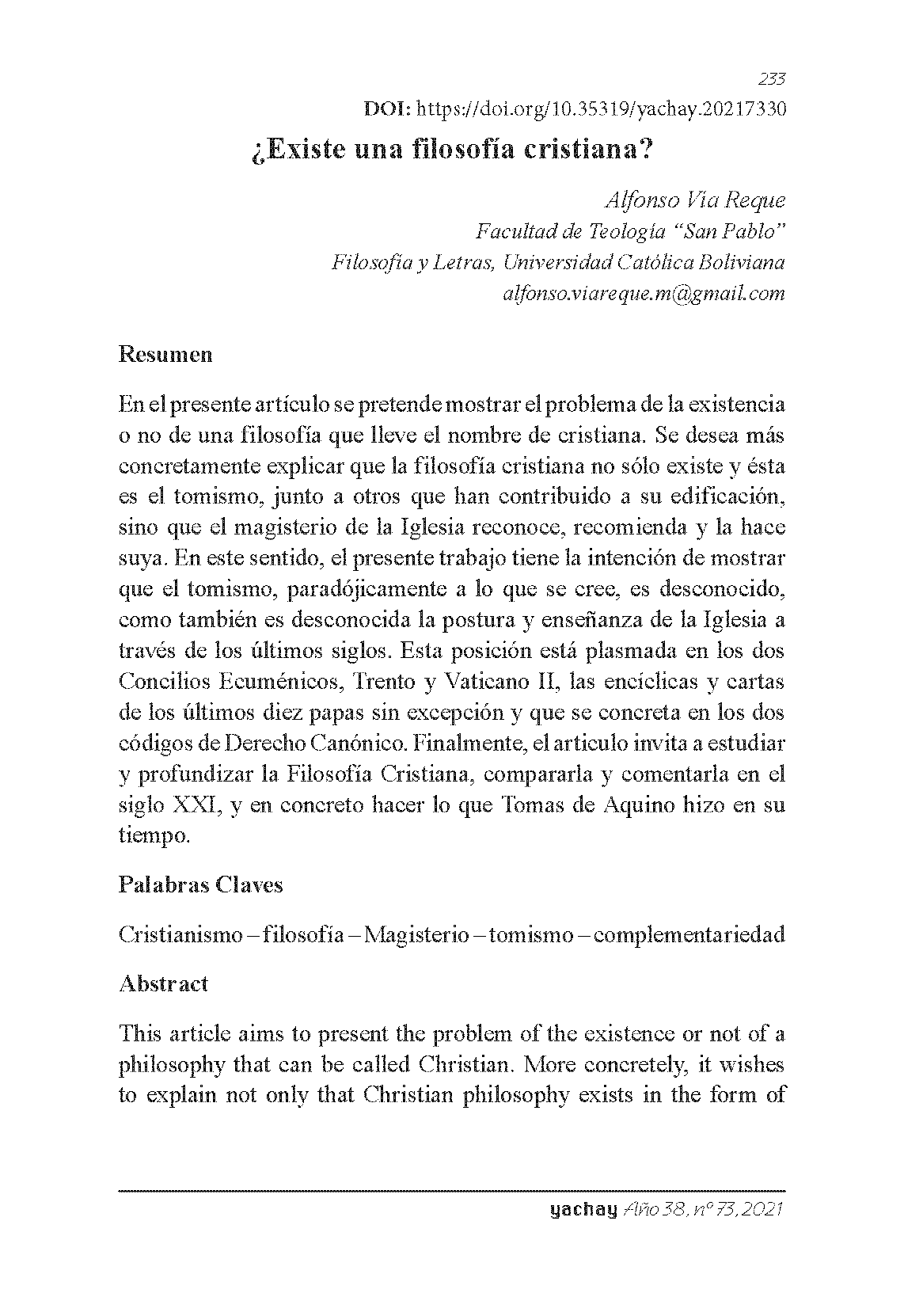Does a Christian philosophy exist?
DOI:
https://doi.org/10.35319/yachay.20217330Keywords:
Christianity, philosophy, Magisterium, Thomism, complementarityAbstract
This article aims to present the problem of the existence or not of a philosophy that can be called Christian. More concretely, it wishes to explain not only that Christian philosophy exists in the form of Thomism, which has been honed by others who have contributed to its development, but that the Church’s Magisterium recognizes and recommends it, making it its own. In this sense this article intends to show that paradoxically both Thomism and the Church’s teaching about it in the last centuries is unknown. The Church’s position is expressed in the Councils of Trent and Vatican II, in encyclical and letters of the last ten Popes without exception, and made concrete in both Codes of Canon Law. Finally, the article invites a profound study of Christian philosophy, comparing and commenting it in the twenty first century, following the footsteps of what Thomas of Aquinas did in his time.
Downloads

Downloads
Published
How to Cite
Issue
Section
License
Copyright (c) 2021 Revista YACHAY

This work is licensed under a Creative Commons Attribution-NonCommercial 4.0 International License.
De acuerdo a la Ley 1322 de Derechos de Autor en Bolivia, la Revista YACHAY respeta los derechos morales de los autores, amparando la parternidad e integridad de sus obras publicadas.




